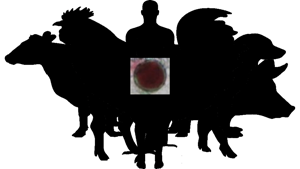Article contents
Historical contingency, geography and anthropogenic patterns of exposure drive the evolution of host switching in the Blastocystis species-complex
Published online by Cambridge University Press: 29 March 2021
Abstract

Parasites have the power to impose significant regulatory pressures on host populations, making evolutionary patterns of host switching by parasites salient to a range of contemporary ecological issues. However, relatively little is known about the colonization of new hosts by parasitic, commensal and mutualistic eukaryotes of metazoans. As ubiquitous symbionts of coelomate animals, Blastocystis spp. represent excellent candidate organisms for the study of evolutionary patterns of host switching by protists. Here, we apply a big-data phylogenetic approach using archival sequence data to assess the relative roles of several host-associated traits in shaping the evolutionary history of the Blastocystis species-complex within an ecological framework. Patterns of host usage were principally determined by geographic location and shared environments of hosts, suggesting that weight of exposure (i.e. propagule pressure) represents the primary force for colonization of new hosts within the Blastocystis species-complex. While Blastocystis lineages showed a propensity to recolonize the same host taxa, these taxa were often evolutionarily unrelated, suggesting that historical contingency and retention of previous adaptions by the parasite were more important to host switching than host phylogeny. Ultimately, our findings highlight the ability of ecological theory (i.e. ‘ecological fitting’) to explain host switching and host specificity within the Blastocystis species-complex.
- Type
- Research Article
- Information
- Copyright
- Copyright © The Author(s), 2021. Published by Cambridge University Press
References
- 7
- Cited by



